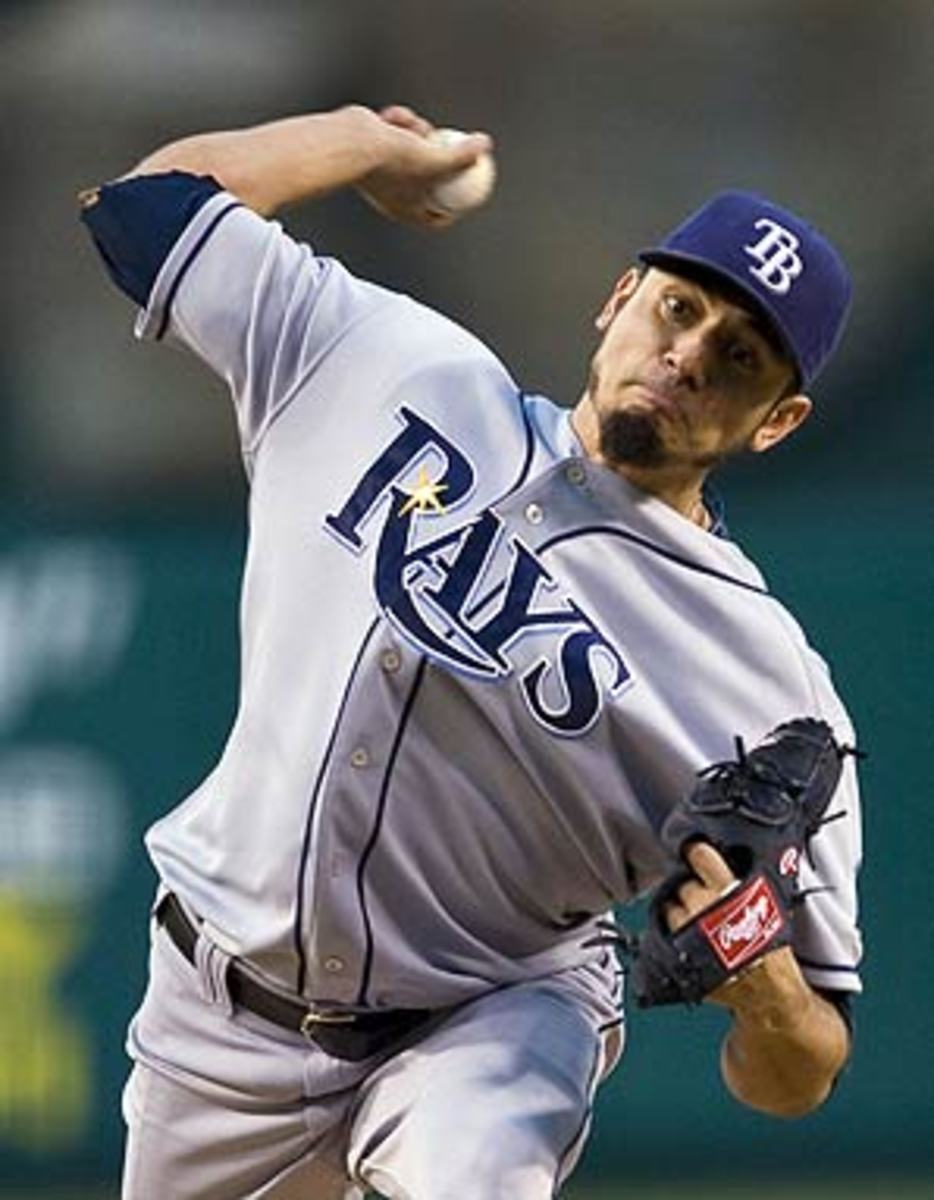Pitching-rich Rays are a problem for Red Sox -- and everyone else
Yes, it's not too early to say that the Rays are for real. They are so good that they have interjected urgency to Boston's season in early May. The Red Sox have already had one bad month. Another will doom them. They have to play .600 ball for five months to have a chance -- not impossible, but the sword of Damocles will be hanging over them.
For all their early problems, Boston's biggest problem is the Rays. In its first 28 games Tampa Bay outscored its opponents by 83 runs. That's such an absurd pace that if the Rays kept it up they would finish with a run differential of +480. For context, it would blow away the run differentials of the 1998 Yankees (+309), 1927 Yankees (+376) and 1939 Yankees (+411), three of the greatest teams of all time.
The key for the Rays is that they have five starting pitchers between ages 24 and 28 with smooth deliveries who pitch off their fastball -- all good markers for holding up over the course of the season. Wade Davis, Matt Garza, David Price and Jeff Niemann, for instance, rank 6-7-8-9 in the league for greatest percentage of fastballs. And JamesShields (4-0) is nearly as aggressive. The Rays' starters are 17-3 with a 2.51 ERA -- and had extra rest for 18 of their first 28 starts.
And if the Rays need another starter, they have top prospect Jeremy Hellickson, 23, sitting in Triple-A. He began the year 5-0 with a 2.57 ERA. Those starters should keep Tampa out of any lengthy tailspin.
The Rays even get a break with the interleague schedule. The Red Sox play 12 games against defending NL playoff teams (Philadelphia, Los Angeles, Colorado). The Rays have none.
I liked Tampa Bay over Boston before the year started because I thought their speed and power right-handed pitching made for a mismatch in their head-to-head series. (The Rays are 4-0 thus far vs. the Red Sox, outscoring them 24-9.) It turns out that the Rays have been trouble for just about everyone. They are as good as any team in baseball right now.
The Rays' 21-7 start sounds pretty impressive, right? But what does it mean? We've all seen fluke teams get out of the gate quickly and fade. But here's the thing: Fluke teams don't start a season 21-7.
The Rays are only the seventh team in the 15 full seasons with the wild-card format to go 21-7 at the start of a season. Of the previous six, five won their division, including two eventual world champions. Only the 2002 Red Sox started 21-7 and didn't make the playoffs -- and they won 93 games. And the average win total for those six teams? Try 103.
Here is the track record for teams in the wild-card era that started 21-7:
Baseball lost two legends this week with the passing of broadcaster Ernie Harwell and Hall of Fame pitcher Robin Roberts. As prolific as were their careers, they should be remembered as exemplary people -- true role models not just for their accomplishments but also for their humility, class and dignity.
Both Harwell and Roberts were remnants from a bygone era. Harwell came from an age when a baseball broadcaster used smooth diction and understated elegance to befriend his audience, a lost art given the audaciousness, trumped-up signature calls and desire to be noticed in broadcasting today.
Roberts excelled at a time when starting pitchers took the ball every fourth day and more often than not completed what they started. From 1950 through '55 he averaged 323 innings and 27 complete games per year.
It was a joy to be in the company of both men. I looked forward to seeing Ernie whenever I covered a Tigers game, basking in his unwavering pleasant manner and gift for storytelling. I was fortunate enough to serve with Robin on the Hall of Fame Veterans Committee for Managers and Umpires. In a room full of impressively accomplished men, Robin stood out for his keen intellect and strong sense of fairness.
It is important that young people in particular understand the legacies of Harwell and Roberts, but only partly because they did their jobs in ways that have been lost over time. It's important to remember how fondly and deeply they were held by the people of Detroit and Philadelphia, respectively. It's baseball at its best -- when good men become so valued to a city that they become a part of that city's heritage, not just of the ball club's history. Their impact was not only a sporting one but also a social one, and that was possible only because of their humility and benevolence.
"When I think of Robin," said Phillies chairman Bill Giles, "there is definitely one word that comes quickly to mind: class. He was a class act both on and off the field. He was definitely one of the most consistent quality pitchers of all time, and the way he lived his life was exemplary. Every young baseball player should model their life after Robin."





